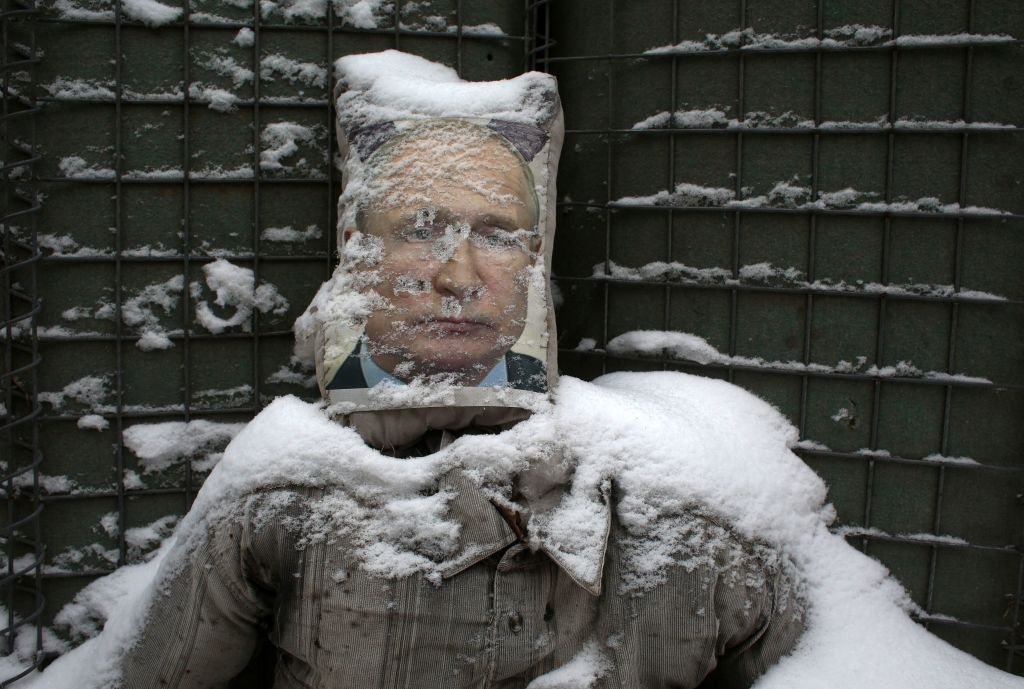Winter is coming, and Putin is failing

When Russian President Vladimir Putin launched his war of aggression against Ukraine on 24 February, he evidently expected a quick and easy victory. Having implied in his speeches that Ukraine was a flimsy fiction of a nation, he assumed that it was bound to collapse, although he committed almost 85% of Russia’s active-duty army to his so-called ‘special operation’.
With the sudden success of the Ukrainian armed forces’ counteroffensive in the past weeks, the war has entered a new phase.
Obviously, Putin severely misjudged the country he was invading. He should have known better. In 2014, following his annexation of Crimea, he tried to take much of eastern and southern Ukraine with a combination of proxy forces and direct military intervention, but the Ukrainians marshalled a determined defence of their freedom and independence—and they have done so again this year.
By April, the Kremlin had already been forced to admit that its effort to capture Kyiv and topple Ukraine’s leadership had failed. Russian forces’ retreat from the areas around the capital revealed a landscape of wanton destruction and war crimes. Russian military leaders in a second phase of the aggression then shifted their focus to capturing the Donetsk and Luhansk districts that comprise Ukraine’s eastern Donbas region, as well the entire Black Sea coastline east of Odessa.
Over the past six months, Europe has witnessed its most intense fighting since World War II. Russian artillery has pummelled Ukrainian cities and villages, indiscriminately striking residential areas, hospitals, kindergartens and power plants. Yet Russia’s progress has been far more limited than anticipated. Supplied with modern Western weaponry, Ukrainian forces were able to hold the line. The conflict seemed to have become a prolonged war of attrition. Although Russia’s offensive had stagnated, Russia’s substantially larger size meant that it would be able to keep committing resources (albeit of diminishing quality). Ukraine’s prospects remained highly uncertain.
But now the tide appears to have turned. Ukraine launched a counteroffensive in the south, around Kherson, and then staged a lightning assault on Russian positions in the northeast, around Kharkiv, the country’s second-largest city. Having been in Kyiv as news of the Ukrainian forces’ rapid advance started to come in, I can report that the mood was jubilant. ‘Now,’ everyone said, ‘we have demonstrated to the world that victory is possible.’
The mood in Moscow is reportedly the opposite of jubilant—as well it should be. Russians are quickly coming to recognise that defeating the Ukrainian military and occupying the entire country, as outlined by Putin, is not possible.
Hence, pro-Kremlin bloggers have begun to complain about strategic missteps and a lack of supplies for the troops. As one commentator put it, ‘We have already lost, the rest is just a matter of time.’ Even in the official Russian media, one finds shock and despair. While some analysts desperately call for a declaration of total war and a general mobilisation, others argue that it wouldn’t help, and that it’s time for political negotiations with Ukraine. But there’s no clear message overall. Putin, from his Kremlin bunker, continues to insist that everything is going according to plan. But that claim has clearly lost credibility.
Without any real possibility of a military victory, Putin is now cutting energy supplies to Europe, hoping that a harsh winter will force Europeans to abandon their support for Ukraine. But that is another misjudgement by the Kremlin. Europeans will do no such thing. Europe has reduced its dependence on Russian gas from 40% to 9% in the space of just a few months, and its gas reserves for the winter are already filled up to 84%. Though there will still be difficulties, they won’t have any decisive political effect. Energy blackmail was one of Putin’s last weapons, and it is becoming duller by the day.
Now, Europe and the United States must step up their support for Ukraine. Providing the €5 billion per month needed to keep the Ukrainian state going will require only around 0.03% of EU GDP. That support must come on top of a sustained effort to strengthen and re-equip the Ukrainian armed forces with more Western weapons. The US has clearly been leading here, but Europe must also do its part.
My guess is that Putin will remain holed up in his Kremlin fortress (and information bubble) through the winter in anticipation that his political strategy against Europe will succeed. Eventually, however, it will become clear even in Moscow that both the military and political strategies have failed. At that point, a radically new situation will emerge. Not only will it be obvious to everyone that Russia can’t win, but it might even start to look as though Russia will lose the war that Putin started.
At that point, Russia will have no choice but to put the profound strategic failure of the Putin regime in the past.